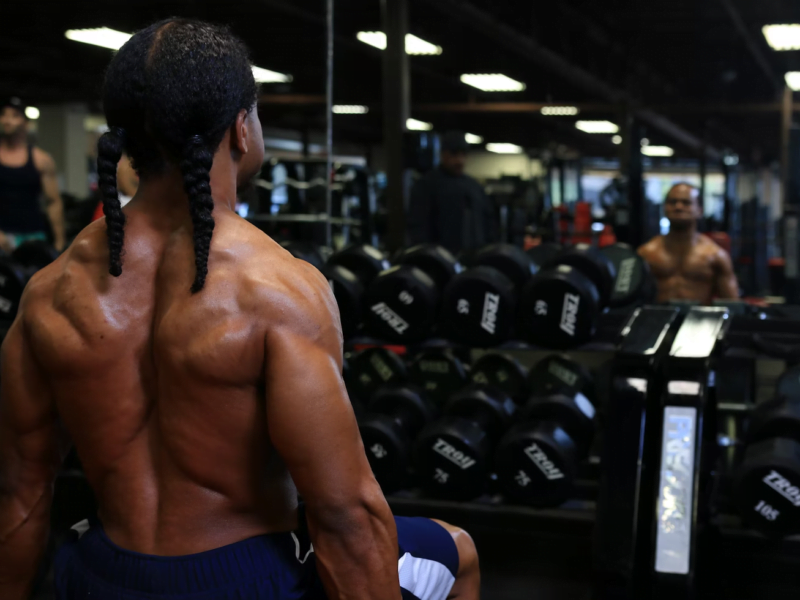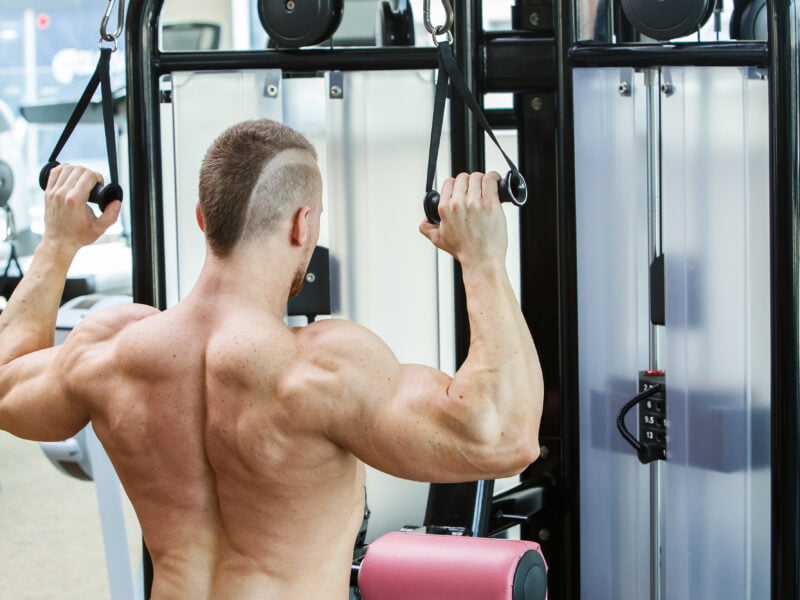Ah, the dream of toned muscles and sculpted physiques!
It’s a goal many of us chase with passion. We hit the gym, lift heavy, sweat buckets, and expect to see those gains roll in. But did you know your eating is just as important as your workout routine?
You might be sabotaging your muscle-building journey without even realizing it. Yes, some foods sneak into your diet and undo all your hard work. Building muscle requires a well-planned diet for muscle growth and recovery.
While many focus on what to eat, it’s equally important to know what foods to avoid. The wrong foods can hinder your progress and potentially cause health issues. Here, we’ll discover which food to avoid when building muscle.
Sugary Foods And Beverages
Sugar is the sneaky villain in the story of muscle building. High sugar intake can lead to insulin spikes, which may promote fat storage instead of muscle growth. It’s not just about the obvious sweets like candy and desserts, but also sugary drinks such as sodas and energy drinks. These provide empty calories without any nutritional benefits. Sugary foods and beverages can cause rapid fluctuations in blood sugar levels, leading to energy crashes that can affect your workout performance.
Instead of sugary snacks, opt for natural sources of sweetness like fruits, which also provide essential vitamins and minerals.
Processed Foods
Processed foods account for more than 60% of the calories in the American diet. They are high in unhealthy fats, sodium, and preservatives, which negatively impact your health and muscle-building goals. These foods include items like chips, frozen dinners, and deli meats. They are usually low in essential nutrients and high in trans fats, which can lead to inflammation and hinder muscle recovery.
Instead, focus on whole foods such as lean meats, vegetables, and whole grains to provide your body with the necessary fuel for building muscle.
Alcohol
Alcohol also interferes with sleep patterns, and good quality sleep is essential for muscle recovery and growth.
Low-Quality Protein Sources

Not all protein is created equal. Some sources of protein, like processed meats, can be loaded with sodium, nitrates, and unhealthy fats. Hot dogs, sausages, and certain deli meats are examples of low-quality protein sources that should be avoided.
Instead, focus on high-quality protein sources such as lean meats, fish, eggs, and plant-based proteins like beans and legumes. These provide the necessary amino acids for muscle repair and growth without the unhealthy additives.
High-Sodium Foods
Excessive sodium intake can lead to water retention and bloating, making it harder to achieve a lean physique. High-sodium foods include canned soups, salty snacks, and fast food. The Centers for Disease Control and Prevention notes that the average American consumes over 3,400 mg of sodium per day, which is well above the recommended limit of 2,300 mg.
High sodium levels can also increase blood pressure, leading to cardiovascular issues. To reduce sodium intake, choose fresh foods over processed ones, and use herbs and spices to flavor your meals instead of salt.
Lorem ipsum dolor sit amet, consectetur adipiscing elit. Ut elit tellus, luctus nec ullamcorper mattis, pulvinar dapibus leo.
Artificial Sweeteners
While they might not add calories, artificial sweeteners can increase cravings for sugary foods, leading to poor dietary choices. Opt for natural sweeteners like stevia or honey in moderation if you need to satisfy your sweet tooth.
Refined Carbohydrates
Whole grains like brown rice, quinoa, and whole wheat products are better options as they provide sustained energy and essential nutrients that support muscle growth.
Dairy Products
If dairy products cause discomfort or bloating, consider alternatives like almond milk, soy milk, or lactose-free products. These can provide similar nutritional benefits without the adverse effects.
Junk Food

Junk food, including fast food and snacks like chips and candy bars, is typically high in unhealthy fats, sugars, and empty calories. These foods offer little to no nutritional value and can disrupt your muscle-building efforts.
To avoid the pitfalls of junk food, prepare healthy snacks like nuts, fruits, and protein bars. These options can satisfy your hunger without derailing your fitness goals.
How Many Calories You Need in Your Overall Diet
Your body requires a surplus of calories to build muscle, but you need to find the right balance to avoid gaining excess fat. The number of calories you need depends on various factors including your age, gender, weight, height, and activity level. Generally, 250-500 calories per day is recommended for muscle gain.
Monitoring your calorie intake ensures that you are eating enough for your workouts and muscle recovery, but not so much that you gain unnecessary fat.
Ratio of Macronutrients
Macronutrients—proteins, carbohydrates, and fats—each play a unique role in muscle building. A common recommendation for muscle building is to consume a diet consisting of 40% carbohydrates, 30% protein, and 30% fats.
Carbohydrates provide the energy needed for intense workouts, while fats improve hormone production and overall health. Adjusting your macronutrient ratios based on your body’s response will get you better results in your muscle-building journey.
Key Takeaway
Building muscle requires more than just pumping iron; it demands a disciplined diet approach, for instance you can follow the 30 day fasting method and keep an equal focus on foods you’re not eating.
Avoiding certain foods can make a significant difference in your bodybuilding goals. Sugary foods, processed items, excessive alcohol, fried foods, low-quality protein sources, high-sodium foods, artificial sweeteners, refined carbohydrates, certain dairy products, and junk food can all make your progress null and void. Instead, try to focus on nutrient-dense, whole foods.
So, next time you plan your meal, remember that what you leave out is just as important as what you include.





